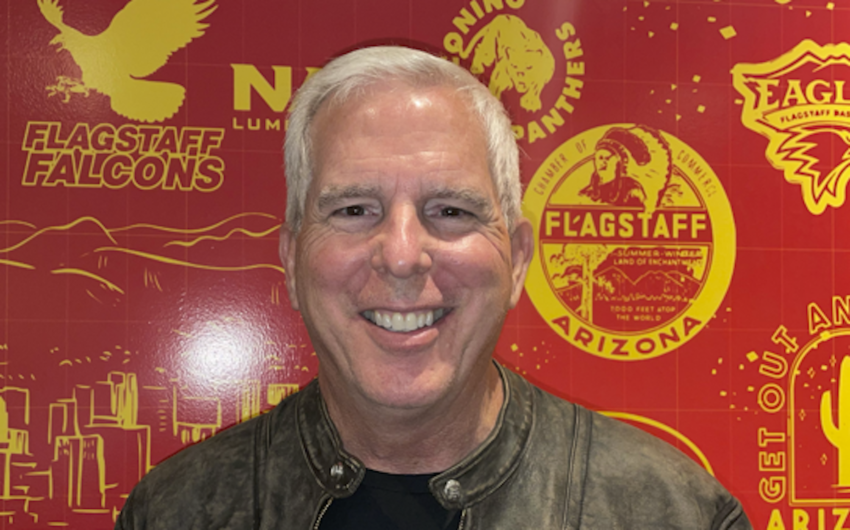Originally from Phoenix, Arizona, David Stocker was raised in a household that valued integrity, service, and charity.
David’s father was a Public Relations Director for the Arizona Education Association for more than a quarter century, as well as an author of non-fiction works for double that amount of time. His father was also extremely involved in the civil rights movement of the 1950s and 1960s, working with the Anti-Defamation League (ADL) and American Civil Liberties Union (ACLU). David’s mother was a long-time volunteer for United Nations Children’s Fund (UNICEF).
In 1978, David completed high school, earning the title of salutatorian—meaning he graduated second in his class with respect to grades. He then enrolled in the University of Nevada, earning his Bachelor’s degree in Music Performance in 1982. He subsequently spent some time in Las Vegas, Nevada working as a professional musician in various entertainment venues, such as lounges and casinos.
Eventually, David Stocker turned his ambitions to law school, and he began attending California Western School of Law, graduating from that institution in 1993. He was admitted to the Arizona Bar, also in 1993. For the following fifteen years, as a practicing attorney, David Stocker owned and operated his own law firm, dispensing his services to a large and diverse roster of clients. In 2016, his younger brother asked him to join a new information technology and software company he started called Tigunia, LLC. David agreed, and took on a role involving legal work, project management, and all manner of administrative tasks. His current title at the firm is Vice-President of Client Services and Head of Legal Affairs.
When David Stocker finds himself with spare time, he enjoys mountain biking, recreational car detailing, and volunteering in his community by providing pro bono legal services to those in need.
What do you currently do at your company?
As the Vice-President of Client Services and Head of Legal Affairs at Tigunia, LLC, my duties are somewhat varied. I oversee a broad range of administrative work, usually large projects, including all aspects of the company’s legal business. I also help my brother Marc and the other co-founder Bret with whatever issues that arise which they think benefit from my attention. Frankly, that encompasses a lot. The company has experienced considerable growth since its founding fifteen years ago. Today, we have more than 200 clients and over 80 employees, so there’s quite a bit to manage.
What defines your way of doing business?
If I had to pick only a few words, I would choose ‘honesty,’ ‘integrity,’ and ‘respect.’
What keys to being productive can you share?
I think the primary thing I do to be productive is ensure that I’m organized. For me, that means keeping a daily to-do list and crossing off tasks as I complete them. I use my work email account as a sort of digital to-do list, as well, which ensures that I always reply to any communications I receive during the course of the workday. I’m also an early riser. I start work by 6:30 am each day in order to get a healthy jump on everything I need to accomplish.
What would you tell your younger self?
If I could travel back in time and talk to my younger self, I would give the following advice: Keep pursuing music, sure, but maybe as a hobby and not as a vocation. It is an unfortunate truth that most professional musicians don’t earn a lot of money. I would then counsel the younger version of me to study law much earlier in life. I might say something like, “You’ll end up becoming an attorney eventually anyway, so why not speed up the process?
What’s the most valuable lesson you’ve learned through the course of your career?
The application of critical thinking to not only work-related issues, but to all aspects of life is incredibly important. Don’t just mindlessly believe everything you read on the internet or see on TV, and don’t just accept everything people tell you as stone cold fact. You have to verify facts, consult other sources, and above all else apply reason and logic to every decision you make.
What are some of your favorite things to do outside of work?
I really like riding my mountain bike outdoors. It’s a great way to get some exercise and fresh air. Beyond that, I enjoy recreational car detailing. Also, I try to put some time aside each week for pro bono legal work on behalf of those in my community who require such assistance but can’t afford it.
How would your colleagues describe you?
I would like to think that they would describe me as intelligent, hardworking, decent, and thoughtful.
What is one piece of technology that helps you the most in your daily routine?
As I mentioned earlier, I tend to use my work email account as a to-do list. As people send me messages, I make sure to reply to them right away. That way, nothing slips through the cracks. I realize it’s not the most interesting answer to the question, but it happens to be true.
How do you measure success?
These days, I measure professional success by how my efforts affect the company. Have the projects I’ve undertaken brought us dividends of some kind? And do they reflect well on the firm overall? If the answer to both these questions is ‘yes,’ then I can safely say that I’ve achieved success.
What advice would you give to aspiring to succeed in your field?
Regarding success in general, work hard. There is simply no substitute for it. Regarding success in the legal profession, always act in the best interests of your clients, no matter who they may be. In some cases, you may be their only advocate in this world, and that’s why they pay you. If you do this consistently, you will gain a reputation for having integrity, and that is invaluable in the legal arena.


